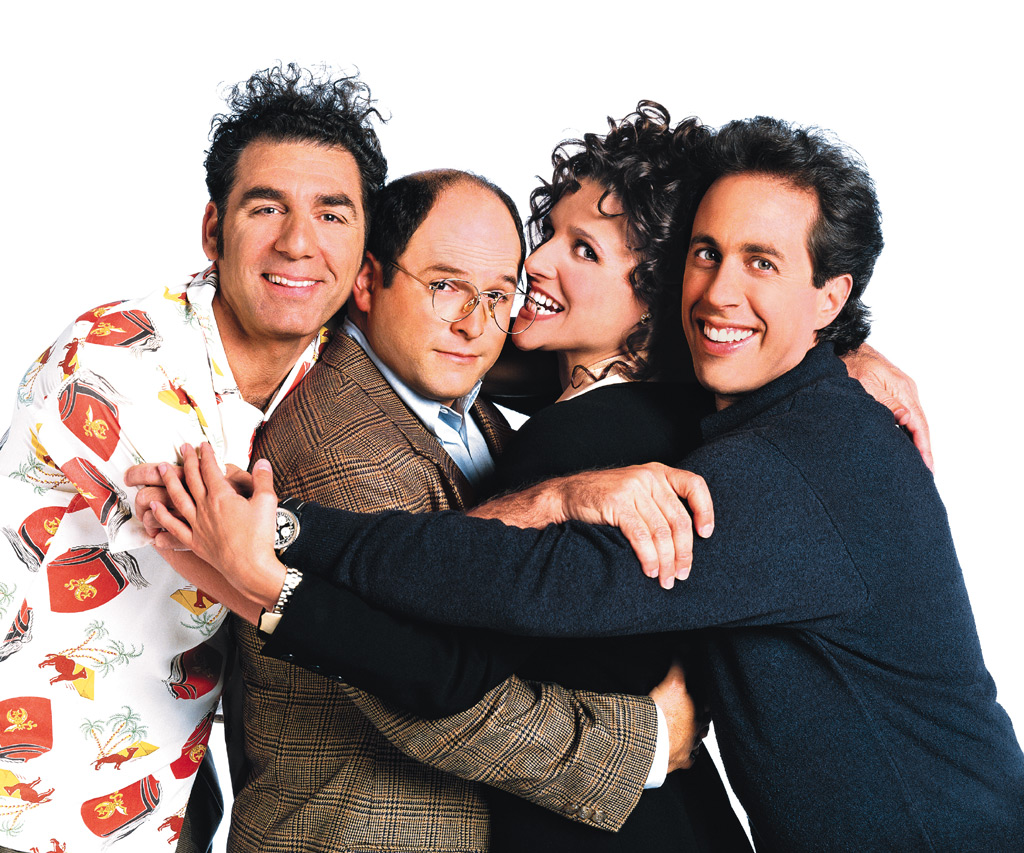Ten years ago, television suffered a tremendous loss. One of the greatest, if not most important, sitcoms of all time called it quits. ‘Seinfeld’ was a show that desired to be different. It did not focus on contemporary moral plight but rather highlighted the minute details that drove society crazy (only they were unaware that it did). As writer Bill Zehme once noted in a magazine dedicated to the show entitled ‘Seinfeld Forever’: “Seinfeld gave America permission to obsess over all that is inconsequential in life”. Truth be told, ‘Seinfeld’ was more intent on focusing on the idea that eating your peas one at a time was a far more relatable problem for society to contemplate then it was to focus on issues of race, gender, and politics. ‘Seinfeld’ has always been incorrectly defined as a ‘show about nothing’. On the contrary, the show was about everything, society was just not aware of it.
Much Ado About Nothing
‘Seinfeld’ was a show which celebrated the idea that nothing could mean everything. For nine seasons and over 170 episodes, viewers became emotionally intertwined with the likes of four characters, Jerry Seinfeld, George Constanza, Elaine Benes, and Cosmo Kramer.
For all their narcissistic, conniving, and insensitive traits, viewers still came to sympathize with these highly unlikable characters. These characters never emotionally grew in their nine years of existence, and never attempted to change. They were comfortable with their lifestyle for the most part but yet remained undeniably angry at the world around them. They would constantly fret and agonize over problems at Monk’s coffee shop, or they would journey to Jerry’s apartment to further complain about the injustices perpetrated by society against them. These characters never strived to change, but viewers continued to love them anyways. Perhaps, it was because they could so easily relate to the problems they endured.
Let’s face it. This world is a selfish place. For many people, the world revolves around them and them alone. They are unconcerned with the poor and needy, but are sometimes too afraid to admit this. What ‘Seinfeld’ did was to create an outlet for these people. The show highlighted the fact that people were not alone in this matter. These characters were just as shallow and self absorbed as them. According to Larry Charles, one of the many talented writers for ‘Seinfeld’: “People rarely say exactly what’s on their minds in real life, so by lying, Jerry and George and Elaine and Kramer were all being honest. It’s an honest show about lying” (Seinfeld Forever, Zehme). As heartless and mean-spirited as this sounds, it is undeniably true fact about this sitcom. According to Zehme: “And even if they (the characters) never learned anything, they handily grasped their own limitations as humans, which was an exemplary lesson to the rest of us”.
Ten Years Later
So why is Seinfeld still so important ten years later? To be honest, it is very difficult to answer that question. However, there are many elements that may be noted about why the show was successful in the first place. The show was hilarious, the acting was great, the writing was spectacular, the situations were absurd, the pop culture jargon was innovative, and the supporting cast was well rounded and abstract. In fact, there may not have been one ‘normal’ character on the show. They all had their flaws.
Perhaps this is why the show remains influential to this day. These characters were bizarre and creative, which made them real. No one was perfect, and the situations they created for themselves were inane and ridiculous, but yet somehow remained relevant to the world lived in.
Just recently, a magazine counting down the most important aspects of entertainment in the 1990s was released and deemed, (perhaps) shockingly, that ‘Seinfeld’ was rated number one. The reasons were that the show was considered highly influential and an important mode of entertainment not to be forgotten. This is in some ways amusing considering the fact that the show struggled for its first three seasons to find an audience, and consistently remained on the verge of cancellation. But, as it is with most great shows, ‘Seinfeld’ eventually hits its mark and changed the way the world would forever be embraced.
Society became aware of the fashion no-no’s of the puffy shirt, and the errors in giving advice to a Pakistani restaurant owner on how to spruce up business. Whatever the miniscule incident that occurs in one’s day to day life, ‘Seinfeld’ has more then likely covered it in detail. To say the show is about nothing is an extreme error in judgment. To say the show is a timeless masterpiece may be more fitting. Whatever the case may be, the show will continue to live on as a relevant piece of entertainment for all to enjoy.



